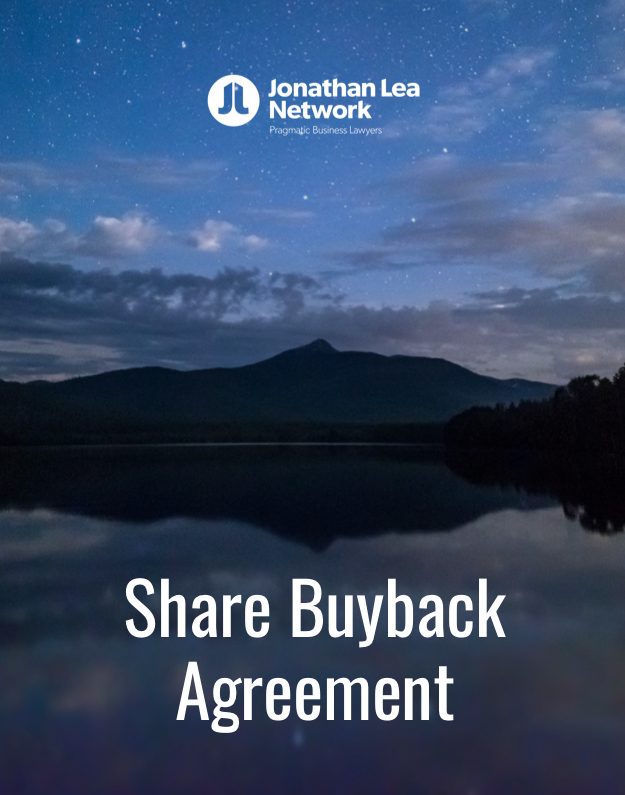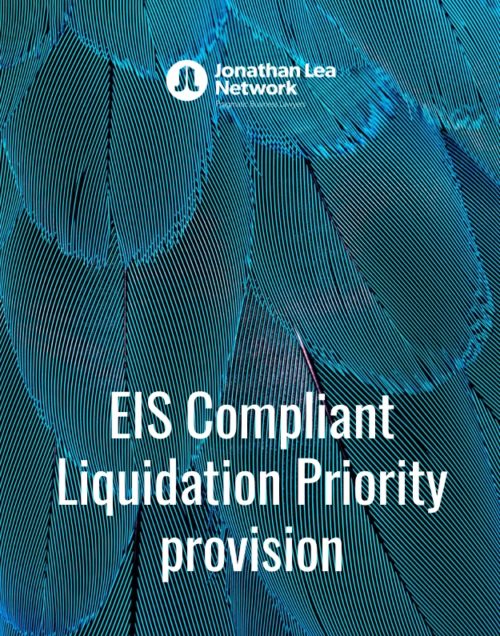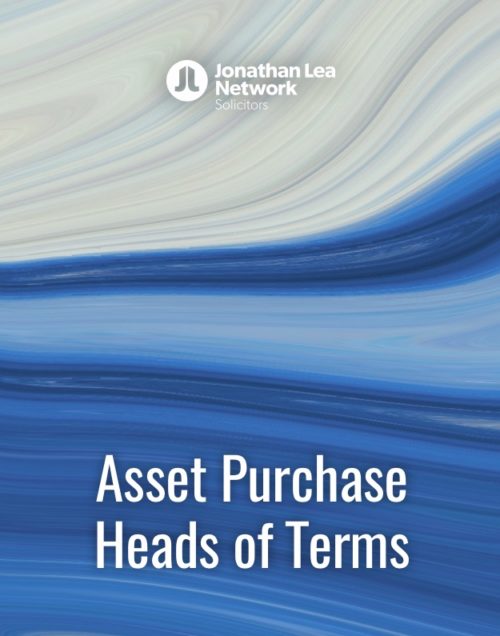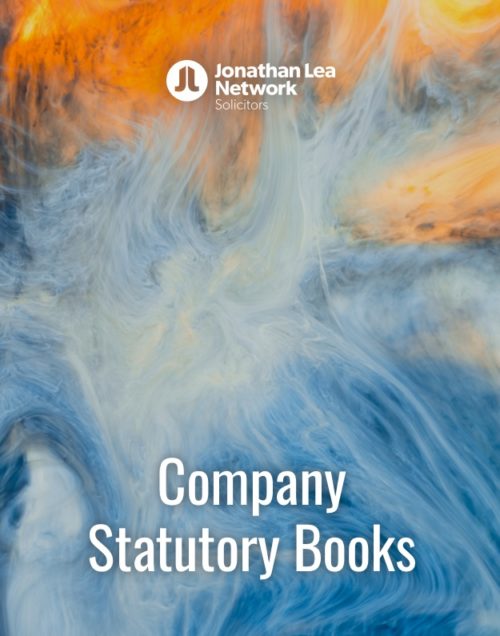Share Buyback Agreement
£18.99
This product constitutes an easily adaptable pro forma share buyback agreement, together with a set of tailored guidance notes which aim to set out how to correctly fill-out the template and explain all significant provisions so as to allow you to put into effect a valid and legally binding agreement.
Our template sets out the main terms that will regulate the buy back of shares, such as the name of the selling shareholder(s), the number and class of shares being sold and the price to be paid for the shares. Note that it is possible for both public and private companies to buy back their shares, however our template has been drafted with a private company limited by shares in mind.
Further down the page are our guidance notes relating to this template which you will also receive as a separate document when you buy the product.
Clause breakdown
Clause 1 (Interpretation)
Clause 1.1 sets out the definitions that will apply throughout the share buyback agreement. Clauses 1.2 – 1.8 are standard interpretation clauses that are used in most commercial contracts and agreements.
Clause 2 (Shareholder approval)
This clause is an optional clause requiring shareholder approval of the share buyback agreement in the form of an ordinary resolution (those shareholders passing a resolution who hold more than 50% of the company’s total issued voting share capital) and should be included if shareholder approval has not yet been acquired. If this is the case, the background provision (D) should be deleted as it won’t apply.
Where shareholder approval has already been acquired, this clause will not be needed and instead the background provision (D) should be inserted.
There is no maximum period required for the long-stop date so you will be able to insert whatever date is suitable to those parties involved.
Clause 3 (Sale and purchase of shares)
Clause 3.1 confirms the consideration amount per share that the company will pay the seller for the shares while clause 3.2 confirms when completion of the sale and purchase of the shares takes place and what must occur upon the completion date.
You will need to amend clause 3.2 to include the wording highlighted in yellow that is relevant to your company. The wording used will depend on whether shareholder approval has yet to be obtained.
Clause 4 (Warranties)
Warranties are effectively contractual promises that a given statement of fact is true. Clause 4.1 means that the seller is providing a contractual promise to the effect that they can enter into this agreement without the consent of any other person and are the sole owner of the shares.
Clause 4.2 means that both parties are providing a promise to each other that on the date of this agreement and prior to completion taking place they have the power and authority to enter into the agreement and can execute and deliver the agreement and documents involved.
Clause 5 (Further assurance)
This clause is designed to ensure that the seller takes any actions necessary to give effect to the agreement. It can be useful for dealing with unforeseen issues that may arise after completion. In reality, the company will be in control of the process and so there should not be anything outstanding after completion.
Clause 6 (Assignment)
This clause prohibits the assignment of the party’s rights and obligations.
Clause 7 (Costs and stamp duty)
This clause provides that each party shall pay their own costs (unless provided elsewhere in the agreement) and that the costs involved with stamp duty will be paid for by the company.
Clauses 8-14 (Boilerplate clauses)
Clauses 8-9 of the share buyback agreement are called “boilerplate” clauses. These kinds of provisions are repeated in all kinds of contracts and are responsible for regulating the operation of the contract.
Boilerplate clauses do not usually contain the commercial terms that vary from one transaction to another.
Boilerplate clauses are often standard, and most are not typically heavily negotiated. They are nevertheless important as many contractual disputes depend on the drafting of boilerplate clauses such as entire agreement clauses.
All of the boilerplate clauses contained within this template use standard wording and are drafted as they would be for most commercial contracts.
Note on clause 10 (Agreement survives completion) – This clause is used to affirm and clarify that certain obligations under an agreement that are not fulfilled at completion of a given transaction will survive, and will need to be performed following, its completion. The clause is primarily used for clarity and certainty and is not an essential part of an agreement. If the survival of completion clause is not included in the boilerplate provisions, it will not be fatal to the existence of any obligations in the agreement that are outstanding at completion.
Note on clause 12 (Counterparts) – This clause provides that the parties to the share buyback agreement may execute (i.e. sign) separate copies of it, rather than all parties having to sign the same copy of the agreement. Using a counterparts clause is advisable for reasons of certainty, and to prevent any argument that the agreement is not binding because it has not been properly executed.









